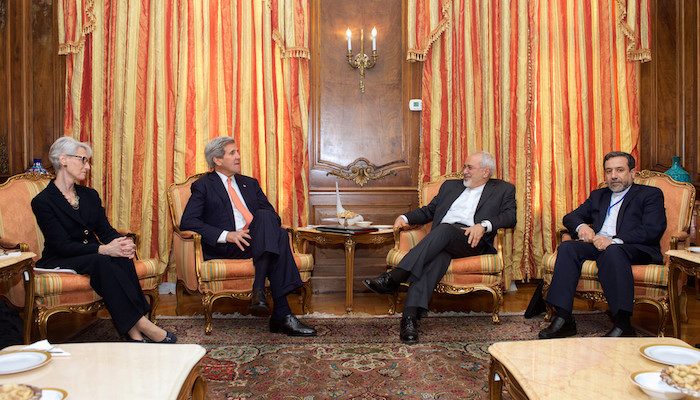
This is an excerpt from International Relations – an E-IR Foundations beginner’s textbook. Edited by Stephen McGlinchey.
Available now on Amazon (UK, USA, Ca, Ger, Fra), in all good book stores, and via a free PDF download. Find out more about E-IR’s range of open access books here.
Diplomacy has probably existed for as long as civilization has. The easiest way to understand it is to start by seeing it as a system of structured communication between two or more parties. Records of regular contact via envoys travelling between neighboring civilizations date back at least 2500 years. They lacked many of the characteristics and commonalities of modern diplomacy such as embassies, international law and professional diplomatic services. Yet, it should be underlined that political communities, however they may have been organized, have usually found ways to communicate during peacetime, and have established a wide range of practices for doing so. The benefits are clear when you consider that diplomacy can promote exchanges that enhance trade, culture, wealth and knowledge.
For those looking for a quick definition, diplomacy can be defined as a process between actors (diplomats, usually representing a state) who exist within a system (international relations) and engage in private and public dialogue (diplomacy) to pursue their objectives in a peaceful manner.
Diplomacy is not foreign policy and must be distinguished from it. It may be helpful to perceive diplomacy as part of foreign policy. When a nation-state makes foreign policy it does so for its own national interests. And, these interests are shaped by a wide range of factors. In basic terms, a state’s foreign policy has two key ingredients; its actions and its strategies for achieving its goals. The interaction one state has with another is considered the act of its foreign policy. This act typically takes place via interactions between government personnel through diplomacy. To interact without diplomacy would typically limit a state’s foreign policy actions to conflict (usually war, but also via economic sanctions) or espionage. In that sense, diplomacy is an essential tool required to operate successfully in today’s international system.
The Secret Lives of Diplomats
What Diplomats Really Do
Tradition and Innovation Diplomat
In the modern context then, a system dominated by states, we can reasonably regard diplomacy as something being conducted for the most part between states. In fact, the applicable international law that governs diplomacy – the Vienna Convention on Diplomatic Relations (1961) – only references states as diplomatic actors. Yet, the modern international system also involves powerful actors that are not states. These tend to be international non-governmental organizations (INGOs) and international governmental organizations (IGOs). These actors regularly partake in areas of diplomacy and often materially shape outcomes. A range of INGOs – such as Greenpeace – have meaningfully advanced progress toward treaties and agreements in important areas tied to the health and progress of humankind such as international environmental negotiations.
The New Face of Diplomacy
Diplomacy in the modern era, an era sometimes called the ‘long peace’ (Gaddis 1989) due to the absence of major war since 1945, has deepened and widened in complexity. Nowadays, it would be ill advised to base a description of diplomacy on actions short of, or in response to, war between states. Diplomacy today is integral to ensuring that our period of long peace gets longer and that the world we live in is as conducive as possible to the progress of the individual, as well as the state. As today’s world is more linked and interdependent than ever before, effective and skillful diplomacy is vital to ensure that humankind can navigate an ever-growing list of shared challenges such as climate change, pandemics, transnational terrorism and nuclear proliferation that may be our undoing if left unresolved. So, while you may not know the names of many of those engaged in diplomatic endeavors, nor see much of their hard work credited in the media, their work is more important than ever to all of us.
Useful links
Vienna Convention of 1961: http://legal.un.org/ilc/texts/instruments/english/conventions/9_1_1961.pdf
The full chapter on diplomacy including case-studies: http://www.e-ir.info/2017/01/08/diplomacy/
The official website of the United Nations: http://www.un.org/en/index.html
The official website of the European Union: https://europa.eu/european-union/index_en
The official website of Greenpeace: http://www.greenpeace.org/international/en/
Further Reading on E-International Relations
- Student Feature – Spotlight on Kosovo’s “Special Court”
- International Law
- Student Feature – UNESCO’s Intangible Cultural Heritage Convention
- Introduction to Research Methods
- Student Feature – Theory in Action: Realism and ISIS
- Student Feature – Theory in Action: Global South Perspectives on Development